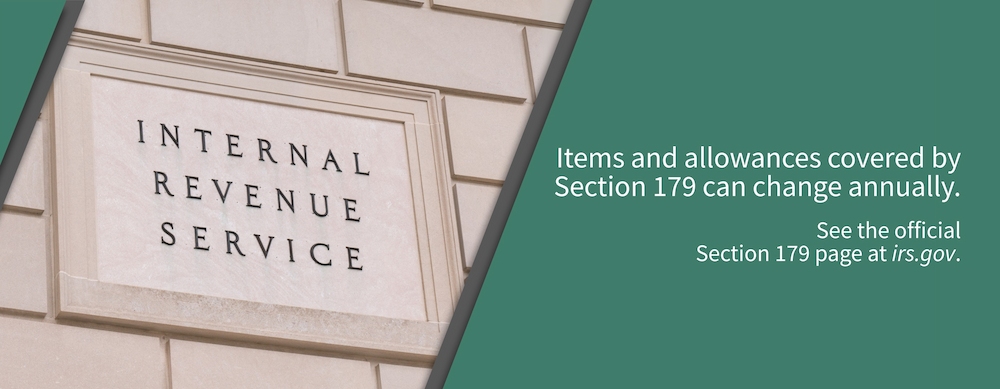The information provided in this blog is intended for education purposes only and not intended to be professional advice. Please consult your tax professional when considering your tax planning needs.
With tax season upon us, small business owners across West Virginia are looking to both maximize their tax advantages and minimize stress. Having a proactive tax strategy not only keeps you compliant with the law—it reduces your tax liability and sets your business up for future success and growth.
Why Tax Planning Matters for Small Businesses
Taxation is one of your business’s biggest expenses. Effectively handling your taxes is vital to the short- and long-term success of your business.
The Cost of Poor Tax Planning
Not having a tax plan is costly. According to the IRS, businesses without solid tax plans tend to underpay their estimated taxes, make errors in depositing employee taxes, file their taxes late, or fail to keep their personal and business expenses separate. The penalties that result from this are costly and can hamstring your business’s cash flow. Audits, late fees, and penalties are all avoidable with careful planning and the guidance of a tax professional. It’s nothing that should be left until the last minute.
Key Benefits of Proactive Tax Planning
Proactive tax planning is more than just avoiding pitfalls, though. A tax plan creates material and financial benefits for both you and your company. Effective tax plans maximize your deductions and credits, minimize your liability, and provide you with a better sense of your final tax burden. Accurately estimating your tax burden lowers the stress that comes with tax season and allows you to better manage your business’s cash flow. This can lead to sustained, healthy growth for your business.

Understanding West Virginia Business Taxes
Operating a business in West Virginia has many benefits—a low cost of living, a fertile business environment, and many tax advantages compared to other states. Familiarize yourself with both federal and state business taxes in West Virginia to make the most out of these advantages.
Federal Business Taxes
While your federal tax obligations will differ depending on your business’s structure, below are the five most common types of federal business taxes, according to the IRS.
- Income tax: Whether you are a corporation, an s corporation, or an LLC, you will likely be withholding income tax from your employees. The federal income tax rate ranges from 10%-37%, depending on the tax bracket. Withheld income tax is remitted monthly or quarterly, depending on the amount withheld. As the owner you may not pay your income tax through withholding and will have to make estimated tax payments.
- Self-employment tax: If you work for yourself, you are still required to pay into Social Security and Medicare. Use Form 1040 or 1040-SR to file and pay this tax.
- Employment tax: Aside from income tax, your employment tax obligations include Social Security, Medicare, and Federal Unemployment taxes.
- Excise tax: For certain businesses, an excise tax may be applicable.
Business Taxes in West Virginia
West Virginia has removed a great deal of tax burden from small businesses over the past decade, but as a business owner you still maintain certain tax obligations.
- Corporate Net Income Tax: This tax will be placed on your federal taxable income. In West Virginia, this rate is 6.5%. Businesses that expect their federal taxable income to be over $10,000 are required to make quarterly estimated tax payments.
- Sales Tax: Businesses are required to collect and pay 6% sales tax on all sales and services. A sales and use tax account is created when you register your business with the West Virginia Tax Division. Sales tax must be paid monthly, except in certain circumstances.
- Employment Tax Obligations: As with federal income tax, you will are responsible for withholding state income tax on any taxable earnings. Depending on the wages and salaries, this tax rate can range from 2.36% to 5.12%. Withheld state income taxes must also be remitted monthly.

Smart Tax Deductions and Credits for West Virginia Businesses
Savvy business owners understand how to maximize their tax advantages to save money. Below are some credits and deductions you may be able to utilize at both the federal and state level.
Must-Know Business Tax Deductions
- Insurance: Many of your insurance premiums are tax-deductible, such as worker’s compensation, liability, property insurance, and more.
- Rent: If you rent space or equipment for your business, you may be able to deduct these payments. You may also be able to deduct other payments made to the landlord, such as maintenance fees or security.
- Office Supplies and Utilities: Furniture, paper, business software, and most other office supplies are tax-deductible. You can even deduct your utility payments. If your business operates out of your home, this may be more complicated, and not everything can be deducted if it’s also for personal use.
- Inventory: If you make or sell products, you can deduct many expenses related to maintaining inventory.
- Automobile/Travel Expenses: Expenses related to business travel, including those for a company-owned car, can be deducted. Trips lasting longer than one day can have many associated expenses deducted, including meals, tolls, and lodging.
- Other possible deductions: Certain start-up costs, advertising costs, business loan interest, continuing education costs, and more may also be tax deductible. A tax professional can guide you through all the possible deductions.
Tax Credits for West Virginia Small Businesses
- Economic Opportunity Credit: This credit is available to small businesses that create 20 jobs (or 10, depending on the size of your business) within a specified time frame. The EOC can offset up to 80% of the corporate net income tax.
- Small Business Property Tax Adjustment Credit: For the first time this year, business owners with an appraised property value of $1 million or less can claim a credit for all property tax payments made on time in 2024.

Depreciation and Section 179 Savings
Section 179 allows you to deduct expenses related to depreciating assets such as equipment and vehicles. While smaller deductions for depreciable assets are normally taken over time, Section 179 allows you to take a single, much larger deduction up front. This larger deduction benefits businesses looking to reinvest capital sooner rather than later.
Best Practices for Staying Compliant and Avoiding Tax Pitfalls
Managing Estimated Taxes and Deadlines
Managing your tax payments as a business owner can be tricky. Some key deadlines to remember are:
- Sales tax: Due monthly by the 20th.
- Estimated taxes: Due on April 15, June 15, September 15, and January 15.
- State and Federal Return or Extensions: These must be filed by April 15.
Organizing Financial Records for Tax Season
Good bookkeeping is key to successfully navigating taxation. Maintain all physical and digital documentation related to deductible business expenses, withheld taxes, and tax payments. Quickbooks, NetSuite, and Gusto are all highly rated programs that can help you manage your business finances.
When to Consult a Tax Professional
It is still likely that business software will be unable to meet your tax needs. Businesses with multiple revenue streams, complex inventory issues, high levels of cash flow, or many employees should consult a tax professional. Even for those who are comfortable handling it on their own, a local, experienced tax professional can find ways to save money for West Virginia business owners.
Strengthening Your Business with Tax Planning
Working with your CPA and the professionals at Jefferson Security Bank can help you plan your taxes in a way that sets your business up for long-term success and growth. Schedule a meeting today at one of our West Virginia locations in Jefferson or Berkeley County to create a financial partnership for years to come!

